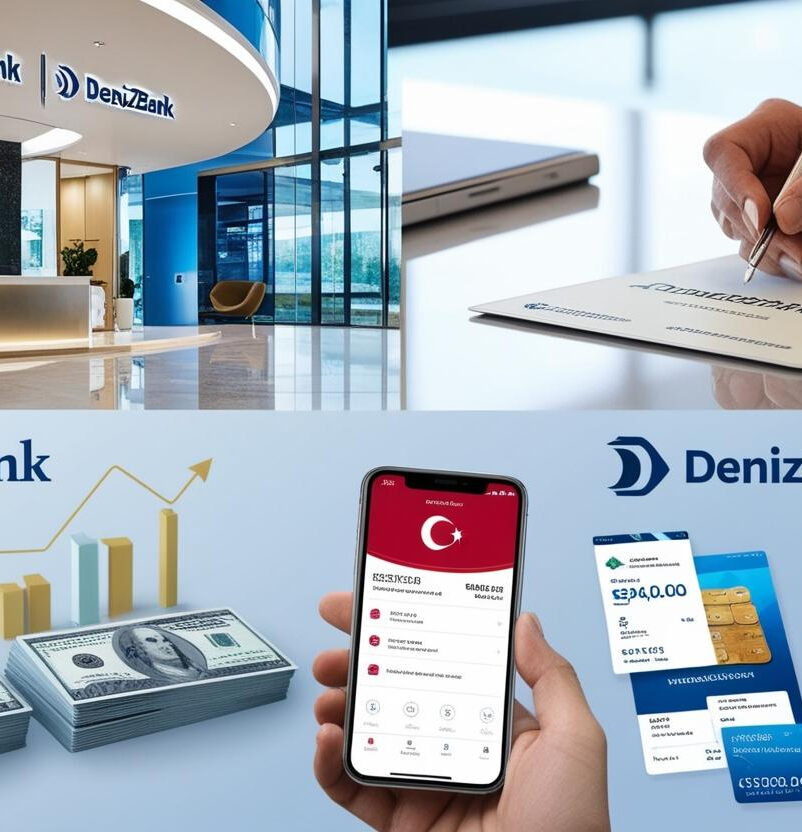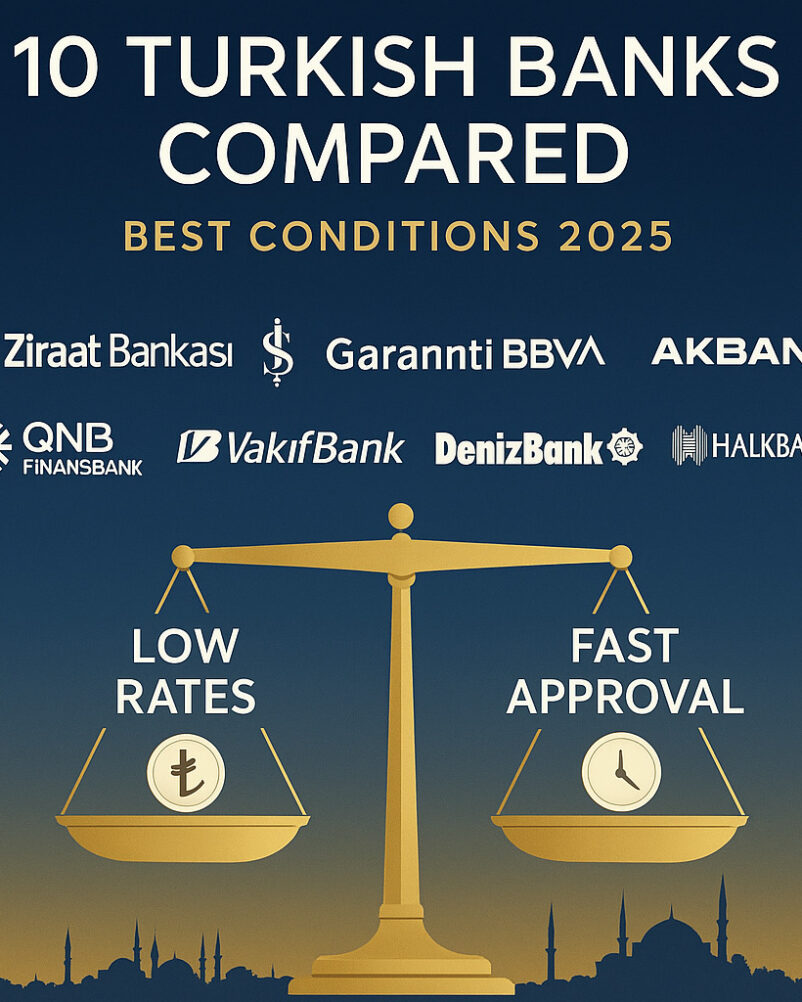Anúncios
Numerous fintechs in Turkey have transformed personal loan approvals into a speedy, purely digital affair, intriguing many borrowers.
Some fear hidden pitfalls, but many appreciate convenience, flexible terms, and potential interest savings from online platforms.
In this guide, you’ll learn about major fintech lenders, how to compare their rates, and key steps to secure fast funding in Turkey, all while minimizing fees. Expect insights on eligibility, repayment, and tips to choose the best digital credit solution for your needs.
How Fintechs Became Key Players in Turkey’s Lending Market
Fintech solutions in Turkey gained traction over the last decade, initially as small startups offering niche payment services. Eventually, these companies recognized a growing appetite for online loan solutions, targeting individuals frustrated by the slow pace and heavy paperwork in traditional bank processes. By developing user-friendly apps and employing data-driven risk evaluations, fintechs quickly expanded their consumer base, enabling short-term and even medium-term personal loans without requiring in-person meetings.
As Turkish consumers became more digital-savvy—driven by widespread smartphone usage and improved internet infrastructure—these fintech platforms evolved from offering microloans to providing more substantial credit lines. Many leveraged advanced AI to generate real-time credit scores, verifying borrower information through e-Government portals or secure digital IDs. This shift radically shortened approval times: instead of weeks, some transactions now finalize in hours. While major banks started to notice the competition, many remained slow to adapt, focusing on established processes rather than digital innovation.
Meanwhile, Turkey’s regulators introduced policies to enhance consumer protections and ensure that fintech expansions didn’t spiral into predatory lending. Borrowers still bear personal responsibility, but the government aims to maintain stability, requiring fintechs to be transparent about interest rates and fees. This blend of regulation and modernization created a space for unique digital services that address consumers with good, fair, or even poor credit. While these solutions frequently come with higher rates for riskier clients, they still might be cheaper than credit card debt or informal lenders.
Those with limited or tarnished credit histories benefited significantly, as fintechs often consider alternative data—such as monthly bill payments or online spending habits—to gauge reliability. Also, the technology-based model means overhead is lower, so some fintechs pass on cost savings in the form of slightly reduced spreads. Admittedly, not all of them do, so prospective borrowers must compare carefully. Considering everything, the rise of fintech in Turkey’s lending market exemplifies how technology merges with finance, establishing a potent new channel for individuals seeking quick and flexible loans.
Anúncios
Quick Tip:
Before committing to any fintech product, look for an official registration or license. This ensures compliance with Turkey’s financial watchdog agencies and reduces your risk of encountering unregulated operators.
Understanding the Types of Online Loans Available
Fintech lenders in Turkey differ widely in their loan structures, interest rates, and repayment schedules. Some emphasize microloans—small amounts typically repaid within a month or two—which can be ideal for bridging minor cash flow gaps. Others cater to more extensive needs, going beyond 50,000 TRY or 100,000 TRY, repayable over a year or multiple years. Even specialized segments exist, such as loans for digital entrepreneurs, funding for e-commerce ventures, or bridging finance for real estate transactions, albeit on a smaller scale than conventional mortgages.
Short-term personal loans from fintechs can feature interest rates that outmatch typical bank overdrafts, making them attractive for urgent scenarios like last-minute medical bills or an unexpected car repair. Meanwhile, medium-term offers can help with modest home renovations or consolidating credit card debt. The key difference from standard banking is the simplicity: often a quick online application requests your ID, contact details, possibly a payslip, and you’re done. Lenders rely on proprietary scoring methods, sometimes connecting to your phone usage or monthly utility payments to assess risk.
However, convenience can come at the cost of higher interest rates, particularly if you have a flawed or limited credit background. Some fintech providers implement tiered pricing, awarding prime rates to users with robust incomes and stable payment histories while imposing steeper percentages on those deemed riskier. Another distinctive trait is the possibility of dynamic adjustments: certain apps allow partial early repayments without penalty, or the chance to “pause” an installment once or twice a year for a fee. This level of flexibility rarely appears in standard bank contracts, granting borrowers more breathing room if faced with irregular monthly earnings.
Borrowers must remain cautious about overspending, though. Quick digital approvals sometimes lead to impulsive borrowing. By reading the fine print—interest rates, opening fees, or monthly admin charges—you can avoid hidden traps. Also, ensure you’re fully aware of whether the rate is fixed for the entire term or if it might shift with reference indices. The bottom line is that online loan offers vary from minimal short-term relief to structured, multi-year solutions. Identifying your actual needs—like paying off bills, covering a wedding cost, or bridging a small business gap—before diving in is key to selecting the correct product.
Quick Tip:
Track your interest’s “effective annual rate” rather than just the nominal rate. Some fintech adverts highlight a monthly rate that might sound minor until aggregated over 12 months plus fees.
How Fintechs Evaluate and Approve Clients with Bad or Limited Credit

One reason that fintech lenders stand out in Turkey is their capacity to service borrowers who, in the eyes of traditional banks, appear too risky or have minimal credit footprints. They might implement advanced credit algorithms that weigh factors beyond the standard black-and-white credit rating. For instance, a borrower’s stable phone bill payment record, timely utility payment patterns, or even e-commerce shopping habits can tip the scale in the applicant’s favor. By harnessing such data, these platforms strive to fill the gap for those with subpar credit who still demonstrate consistent financial responsibility in other areas.
This approach is particularly beneficial for young adults lacking credit histories or those who encountered financial hiccups in the past. A big bank might reject them outright or require a co-signer, whereas certain fintech providers might accept them at a slightly higher rate but still deliver the necessary funding. Thanks to automated scoring, decisions can be made swiftly. But it also means that borderline cases can be instantly refused if the algorithm flags them. Without an in-person banker to plead your case, you rely heavily on whatever data the system collects.
Still, not every fintech embraces a lenient or “second-chance” mentality. Some remain strict, reserving their best rates only for pristine profiles. The difference is that even these stricter fintechs may produce a near-instant result. Should your credit be flawed, you might get an offer that’s either limited in sum or assigned a steeper interest rate. The advantage is that you discover your status quickly—no prolonged wait.
Interestingly, certain fintechs in Turkey have begun forging partnerships with micro-insurance firms or job-loss coverage providers to mitigate risk for higher-risk borrowers. Borrowers might see an optional add-on, which if purchased, can lower the interest rate slightly. From a consumer’s viewpoint, it’s vital to weigh whether that add-on is beneficial or just an extra monthly cost.
Quick Tip:
If you suspect your credit record contains errors or outdated negative marks, rectify them with local credit bureaus prior to applying. This can significantly enhance your acceptance odds and secure better rates.
Main Fintech Players Granting Fast Loans in Turkey
A wide variety of fintech platforms now operate in Turkey, but a handful stand out due to their market presence and customer satisfaction. Although the environment evolves rapidly, the following are widely recognized for their fast approval and user-friendly approaches:
• FinKredi:
Known for an easy signup process, FinKredi relies heavily on phone-based ID verification. Many borrowers mention receiving decisions in under an hour. While interest rates vary, prime clients might see competitive offers.
• HızlıPara:
The name literally means “quick money,” and that is what HızlıPara aims to deliver. They cater to mid-range loan requests—often between 3,000 TRY and 50,000 TRY. They integrate job-loss coverage for a small fee, sometimes reducing your interest if you opt in.
• DijitalKasa:
Boasting an app that displays prequalified amounts even before you finalize an application, DijitalKasa invests in machine learning. If your personal data indicates stable spending, they reward you with a below-average APR. However, some users complain about their messaging if you have a short delay in payment.
• KolayKredi:
Heavily targeting individuals with less conventional credit backgrounds, KolayKredi might offer interest rates a bit above the big banks. But they have flexible, short installment plans—some as short as 3 months—plus partial early repayment with no penalty.
• AvantajFinans:
Concentrating on bridging loans for urgent family or business needs, AvantajFinans claims to deposit funds in 24 hours or less once the user is approved. They also promote bilingual customer support, beneficial for expats in Turkey.
It’s crucial to note that these platforms can shift their policies at any time, especially given the evolving regulatory landscape. Before committing, consult updated data: interest rates, hidden fees, and actual user reviews. Each platform’s sweet spot might differ—some excel at small quick loans, others prefer stable, employed clients seeking bigger lines of credit. The more carefully you align your scenario with a provider that specializes in it, the better the outcome.
Quick Tip:
Check if the fintech reports your payment history to official credit bureaus. A positive record can improve your credit score in Turkey, paving the way for better deals in the future.
Comparative Chart
Here is a simplified table comparing four representative fintech loan platforms in Turkey. Although real conditions can vary or evolve, this chart outlines general traits:
| Fintech | Loan Range | Average Interest Rate | Special Feature |
|---|---|---|---|
| FinKredi | 2.000 TRY–75.000 TRY | 1.5%–3.0% monthly | Rapid phone-based ID verification |
| HızlıPara | 5.000 TRY–50.000 TRY | 2.0%–3.5% monthly | Job-loss coverage can reduce your interest rate |
| DijitalKasa | 3.000 TRY–100.000 TRY | 1.8%–3.2% monthly | AI-driven real-time prequalification displayed via app |
| KolayKredi | 1.000 TRY–20.000 TRY | 2.5%–4.0% monthly | Flexible short installments, no penalty for early payoff |
Strategies for Negotiating or Reducing Interest
Negotiation might appear challenging with a digital platform, but some fintech companies in Turkey still offer a chat or phone line that can handle special requests—especially if you have a high credit rating or you’re consolidating existing debts. Presenting your case for a lower rate can succeed if you demonstrate stable, above-average income or propose direct debit for installments that reduces the risk of late payment.
Several fintechs also implement tiered interest brackets, so pushing your credit score up by removing old negative marks or paying off small overdue bills might automatically shift you to a better bracket. Another approach is checking for optional “membership” in certain loyalty programs that the fintech endorses. For instance, some partner with large retailers or online marketplaces, offering interest discounts if you frequently shop there. While these promotions come and go, they can shave a fraction off your monthly interest.
An additional route is ensuring you do not tack on unneeded insurance or service extras. A typical example: A platform might provide “ID theft protection” for a monthly fee. Unless you truly value that feature, skipping it lowers your total cost. Moreover, if they mention an upfront origination fee or an “application cost,” verify if it’s negotiable or waived during promotions. Some run campaigns that eliminate or reduce that fee to entice new clients.
If none of these steps yield a discount, you can still consider partial early payments down the road. In many contracts, paying an extra chunk toward the principal can either reduce your monthly amount or shorten the overall term. Even a modest sum allocated every few months might reduce your effective interest, leading to savings. However, read the contract for potential restrictions or small charges on partial lump sum contributions, though many fintechs are flexible to encourage you to remain a satisfied customer.
Quick Tip:
Approach multiple fintech providers simultaneously, get preliminary offers, and then politely inform your top choice that another platform gave you a slightly more attractive rate. Sometimes, they’ll match or beat it rather than lose a reliable borrower.
Real Testimonials from Turkey
6. Testimony 1: Ayşe from Antalya
“I was skeptical about online loan platforms because I had a slight blemish on my credit. Traditional banks were requiring me to get a co-signer, but I found a fintech that evaluated my stable salary deposits. I submitted my documents on a Saturday morning, and by Monday afternoon, the money was in my account. The interest rate was a bit above what top-tier customers get, but still cheaper than any short-term solution I found at local banks. My biggest tip for friends is to compare the fees carefully. The first fintech I tried had zero interest for a month, but the catch was a huge administrative charge. The second platform offered a straightforward 2.8% monthly rate with minimal fees. I saved at least a thousand lira by investigating thoroughly.”
6. Testimony 2: Ahmet from Bursa
“My wife and I needed funds to replace our car’s engine after an unexpected breakdown. Our local bank in Bursa gave us a time-consuming request list, telling us we might have to wait weeks. Instead, I turned to a well-reviewed fintech. The entire process, from uploading my pay stubs to final approval, took about 48 hours. Yes, the interest was slightly higher than what I recall from major banks in the best scenario, but we secured it faster, without taking leave from work to handle in-person interviews. We also appreciate the mobile app that tracks how much we still owe. They emailed us tips to pay extra if we can manage it, so we’ll save interest. My only caution is that once you see how easy it is, you might rely too often on these quick loans. Plan a strategy for repayment to avoid turning short-term relief into a recurring debt spiral.”
Notable Statistics About Digital Lending in Turkey
• Over 35% of personal loan applications in Turkey now occur via online loan services or fintech platforms.
• The average approval speed for prime borrowers on certain fintechs is under 24 hours, significantly faster than the typical 5–7 days at major banks.
• According to recent surveys, approximately 40% of those who have used a fintech loan were either first-time borrowers or had below-average credit histories.
• Some experts estimate that the fintech share in Turkey’s consumer loan segment could reach 50% within the next decade, given continued digital transformation and consumer preference for simplified processes.
• Roughly 15–20% of Turkish fintech applicants get offered interest rates below what they would see at a standard bank, especially if their credit score stands out.
Bullet Points to Remember:
• Many fintech solutions are geared toward convenience, but read the full cost structure.
• Negative credit records might not be an absolute barrier; these platforms use alternative data.
• Speed often outperforms bank timelines, but watch out for stealthy charges.
• Evaluate short-term vs. longer repayment durations carefully.
(Quick Tips)
• Always confirm if the fintech is licensed or partnered with regulated entities.
• Check your credit score with local bureaus to fix errors before applying.
• Don’t rely on only one offer; gather a minimum of two or three quotes.
• Beware of potential “introductory” rates that jump after a few months.
4 FAQs
How quickly can a fintech loan be approved in Turkey?
Some claim you can receive fast decisions in hours, often under 24 hours for prime applicants. However, if extra verification is needed—like contacting your employer—approval could extend to a few days. Still, it’s usually faster than most bank processes.
Is it safe to submit personal documents through these apps?
Provided the fintech is reputable and uses encryption, it can be quite secure. Look for an “https” domain and official licensing. If in doubt, read user reviews or check consumer protection sites to ensure no data breach issues have been reported.
Do fintechs only cater to small loan amounts?
Not exclusively. Many started focusing on microloans or mid-range sums (under 50,000 TRY), but some now handle bigger lines of credit. That said, for extremely large sums, you may find better or more stable deals at established banks with collateral-based offers.
Will my credit score improve if I repay a fintech loan on time?
Yes, most recognized fintech lenders report your payment behavior to credit bureaus. Regular, timely installments demonstrate reliability, thus raising your score over time. This improved score can open the door to better interest rates in future borrowings.
Related Topics
• Digital Loan Approval Methods
• Online Financial Regulations in Turkey
• Instant Credit Score Optimization
• Fintech vs. Traditional Banking
• Mobile-First Personal Loan Apps



